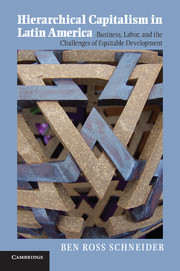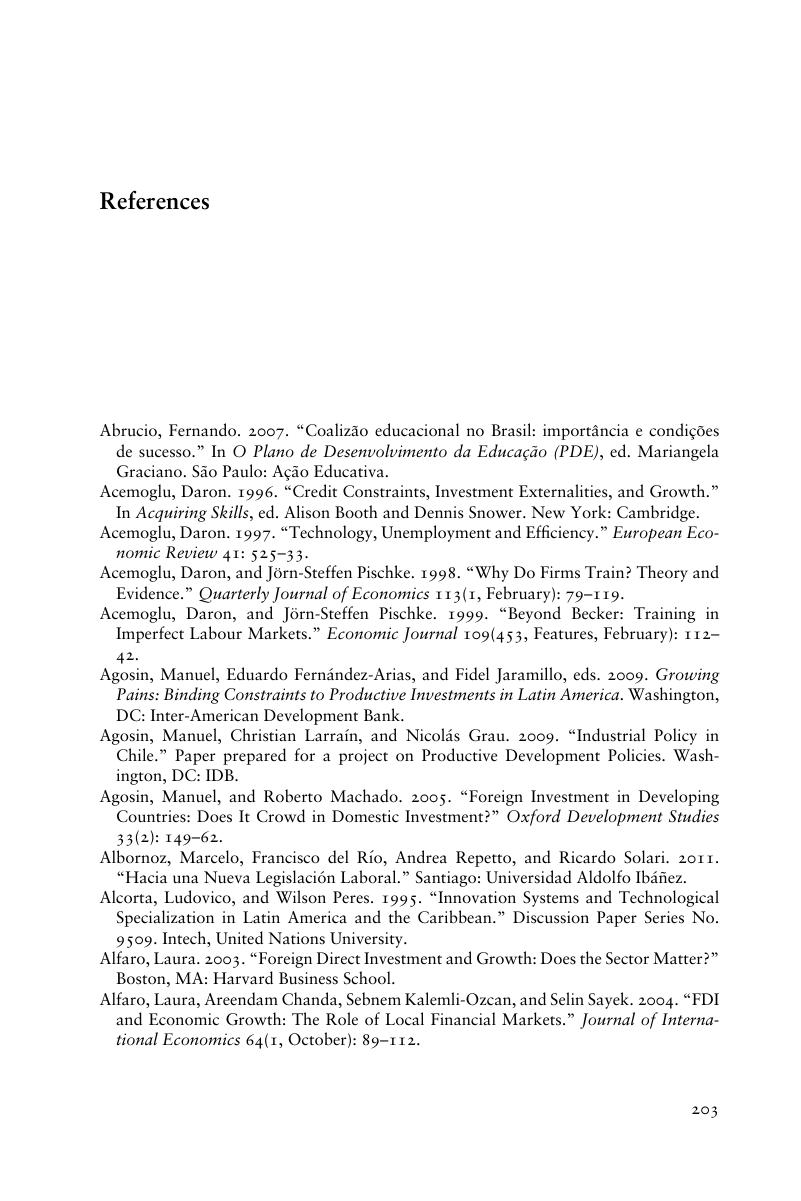 Hierarchical Capitalism in Latin America
Hierarchical Capitalism in Latin America References
Published online by Cambridge University Press: 05 August 2013
Summary

- Type
- Chapter
- Information
- Hierarchical Capitalism in Latin AmericaBusiness, Labor, and the Challenges of Equitable Development, pp. 203 - 230Publisher: Cambridge University PressPrint publication year: 2013


